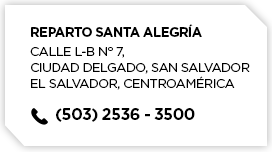
The Center for Research, Training and Production of Materials (CPM) of FUNDASAL. With the idea of concentrating the different efforts in the search for new materials and constructive systems for social housing, FUNDASAL created in 1994 the Center for Research, Training and Production of Materials (CPM), This has been conceived as a center where we can generate technological proposals for low-cost housing solutions from the use of local resources and earthquake resistant construction processes.
The three CPM work areas are:
The CPM concentrates its work in three specific areas: Research, Training and Production of Materials.


– Theoretical investigation, documentation and experimentation:
Materials and the construction of experimental modules or prototype houses are carried out as a tangible sample. The material investigated to evaluate the physical and mechanical characteristics of the particular material and of the construction system as a whole. This gives us a series of technical and social parameters, advantages, limitations, etc.
– Promotion, dissemination and transfer of technology:
It’s objective is to disseminate and exchange experiences with related institutions related to the habitat issue on the progress of research results in alternative materials and technologies.

The Training Area’s main purpose is to instruct potential beneficiaries of housing projects, cooperative groups, local governments, public and private sector institutions, NGOs, technical personnel and people interested in training, advice and assistance in the use of alternative building materials and systems technique. Modular courses, practical workshops, seminars, etc. are carried out in these areas of production and construction with alternative materials.
Specific objectives of the training area:
Provide training to community leaders and technicians to use the improved building technologies. Offering self-construction training to recipients of mutual aid projects in urban and rural areas of El Salvador. Training is given at the municipal level to directly influence the improvement of localities.
Technology transfer process:
This process is developed at different levels in terms of the participating actors. These levels are:
Institutional: A process of sensitization and diffusion of the technologies directed to directors and heads of state institutions, non-governmental organizations and universities has been developed, with the objective of presenting alternative materials for the construction of popular housing.
Project Managers and Community Leaders: Process of theoretical training in technical and organizational aspects at the level of project managers, so that they can then direct and guide the processes in their communities.
Beneficiary population in general: The necessary tools are provided to the population to develop their capacities in the ability of construction techniques that are earthquake resistant and using local or alternative materials to build their homes. The process of self-help solidarity for the construction is based on promoting the community participation.

To maintain sustainability in the use of alternative materials, production is encouraged at a regular scale based on technical research that has been carried out, promoting the creation of local production plants for the benefit of settlers or small producers.





